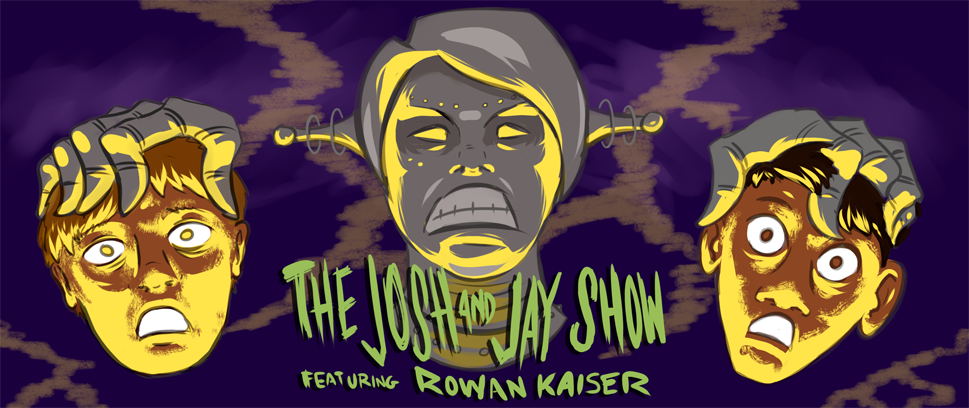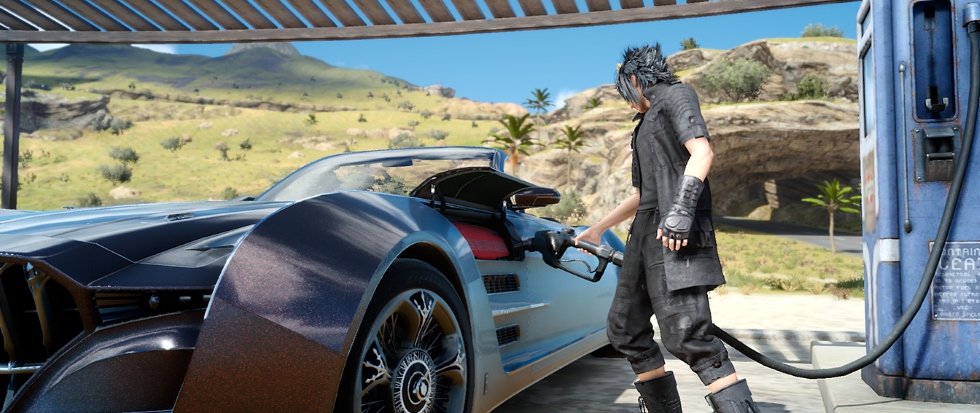
Not Your Enemy – Family Dynamics and the Disappointing Adult in JRPGs
Teens are ever-present in Japanese roleplaying games, yet it’s easy to forget that – cute character design and the technical limitations meant that characters could be anywhere from 13 to 113, yet when a game reminds you of its characters’ age, this should put their behaviour and situation in context.
Due to its more adult character design, Final Fantasy VIII in particular made me realise for the first time that the characters I take control of in JRPGs are supposed to be teenagers, yet they mostly do without the social signifiers that come with being a teen or explore their relationship with their age and their own limitations as young people. Final Fantasy VIII sets a notable precedent by placing it protagonists in a school context – even if school means learning how wield weapons, the fantasy is grounded in the presence of teenagers in school uniforms and everyday worries such as exams and the school cafeteria menu.
JRPGs trade this normalcy for a world in which the societal norms have been invalidated, a world in which adults no longer serve as protectors and sources of wisdom. This forces teenagers to take their place, making us forget that these characters aren’t emotionally ready to measure the consequences of their actions, much less act as saviours.
Responsibility is thrust onto your main character as a punishment for disobeying their elders or because a force outside of their control, something we assume to be more mature like a god or a parent, choses them, sometimes entirely without a reason as to why. In Secret of Mana, a boy pulls a sword from a stone , echoing the take of King Arthur, who gained the power to rule over Britain this way. In Terranigma, a boy opens a door and touches an item he isn’t supposed to, damning his whole village in the process. In Star Ocean: the Second Story, a mysterious power turns protagonist Claude into the Hero of Light, simply because he didn’t stay away from it. Childishness is punished by adults, who then turn out to be unable to provide a solution. The initial punishment then provides a way for teenagers to become heroes.
Some games acknowledge the consequences of immaturity – in Persona 5, the pull of becoming famous super heroes becomes so strong that the group is tempted to let popular opinion decide what target’s heart they should change next, without considering that exposing someone’s crimes has far-reaching consequences for the people around them. The characters gain a lot of strength from the few adults who believe them enough to support them. Yet, direct references to the disappointing behaviour of adults are everywhere, from your protagonists unjust treatment at the hands of the justice system to Yusuke’s entire character arc. Both acknowledge that adults aren’t always superfluous. Yusuke’s story begins with the loss of his mother, leads to disappointment in his foster parent and then closes with an adult enabling his potential. You play a driving role in this by motivating him not to give up, but the story could have played out the same way without your intervention.
This is a rare stance – teenage video game protagonists rarely grow, because such epiphanies are missing. Once the wisdom of adults is established as unreliable, many game teens will react with stubbornness. In Final Fantasy VIII, Squall rejects his true calling as a SeeD and leader of Balamb Garden. That he does so precisely because of his disappointment in the Garden’s director, his only available father figure, is hardly acknowledged. In Final Fantasy XV, your very first introduction to Noctis revolves around the cold goodbye he gives to his father the king, off to fulfil his filial responsibility by entering into a political marriage. Someone interested in their relationship or Noctis’ feelings on the matter isn’t going to gleam anything from the actual game. However, in FF XIII’s Hope Estheim the Final Fantasy series has also produced a good example of someone’s anger at an adult and their struggle to adjust with the loss of a parent. Hope blames Snow for the death of mother and regularly lashes out as a result. Gradually he is able to work through his anger and accept his own reaction as a result of grief.
Aside from disappointment caused as part by family dynamics, most JRPGs simply embroil their characters in matters adults should dealt with on their own – large-scale wars break out due to the greed of single individuals for much of the Tales series. Both in Final Fantasy VIII and I am Setsuna, adults show no scruples when it comes to using young people as sacrifices or magical vessels. In these cases entire story arcs revolve around resisting adults and questioning their wisdom in search for an alternate solution. For a genre so reliant on character interaction, character growth that results fromn a character questioning his relationship with others is astoundingly rare.
As teenagers, half of the excitement of a story comes from finally being able to question adults and realising that teenagers, routinely questioned or dismissed, possess the power to change the world. However, this exciting prospect is based on thoroughly broken relationships between adults and teenagers and parents and their children, and games should examine this fracture instead of accepting it as a given.





